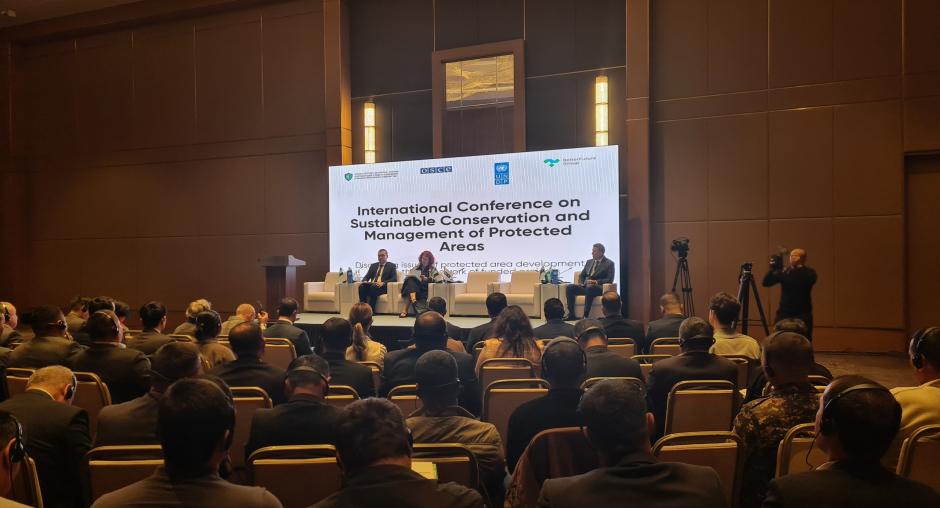International Conference on Sustainable Conservation and Management of Protected Areas, organized by the Ministry of Ecology, Environmental Protection and Climate Change in Tashkent

On 5 December 2023, the OSCE Project Co-ordinator in Uzbekistan (PCUz) supported an International Conference on Sustainable Conservation and Management of Protected Areas, organized by the Ministry of Ecology, Environmental Protection and Climate Change.
While we are globally confronted with a climate and biodiversity crisis, protected areas are a critical component of a life support system and a repository of biodiversity. They provide ecosystem services such as clean water, temperature regulation and food provision. They also have an inestimable social and economic value, providing livelihood security and being instrumental in achieving the Sustainable Development Goals.
Having increased its protected areas coverage in recent years, Uzbekistan has the capacity to leverage the potential of nature to effectively address environmental challenges and achieve socio-economic benefits.
The event was the occasion to exchange views and experienceon current issues in the field of protected area management in Uzbekistan, as well as to propose strategies for better management and avenues for financing.
At the OSCE, we are working on the nexus betweensustainable economic development, environment and security, to find joint solutions to the climate and biodiversity crises.
In order to strengthen the resilience, security and livelihoods of communities in protected areas, the PCUz in particular supports efficient environmental monitoring to complementthe efforts on sustainable management of natural resources.
Over the past years, the PCUz has facilitated the monitoring and assessment of pollution in the Syr Darya River Basin which led to recommendations on mitigation activities. The Mission also works in the South Aral Sea region, supporting regular monitoring to assess the effectiveness of rehabilitation activities with regards to flora and fauna species.
The PCUz will continue to help building institutional and individual capacity of national stakeholders to cope with the challenges posed by environmental degradation and biodiversity loss, taking into account the impacts of climate change.
